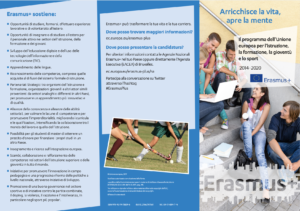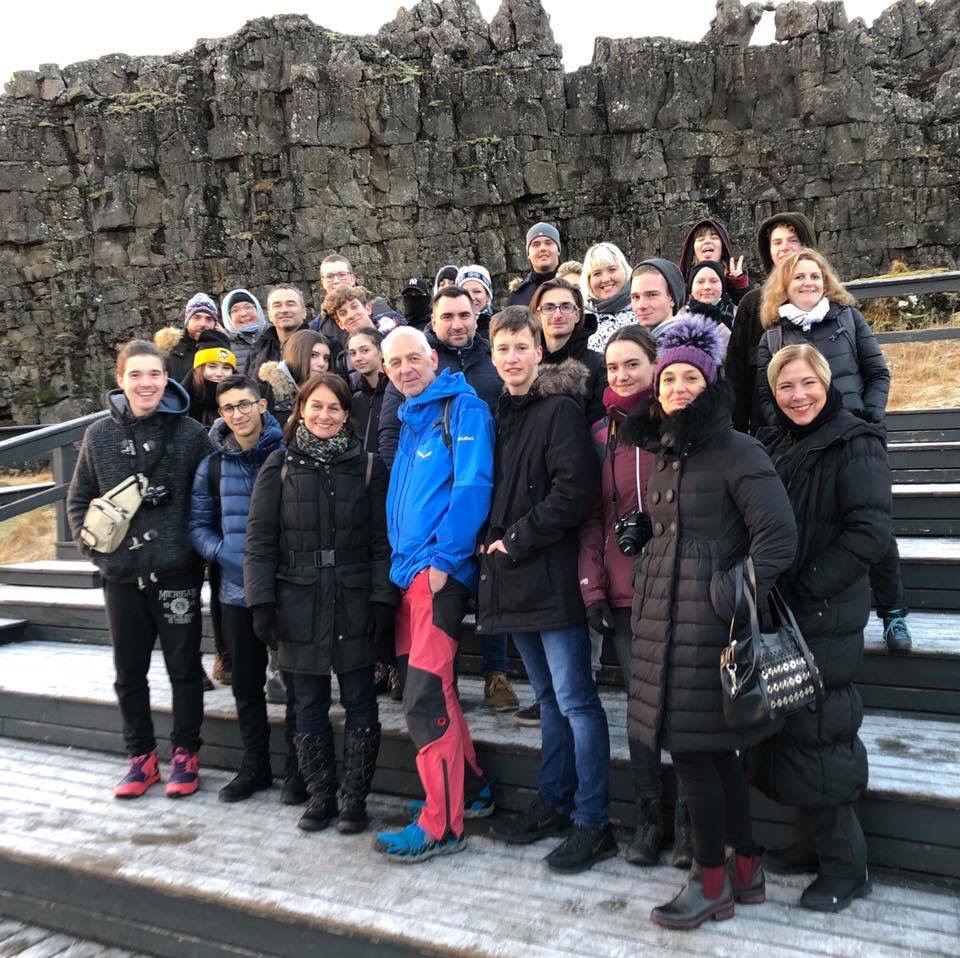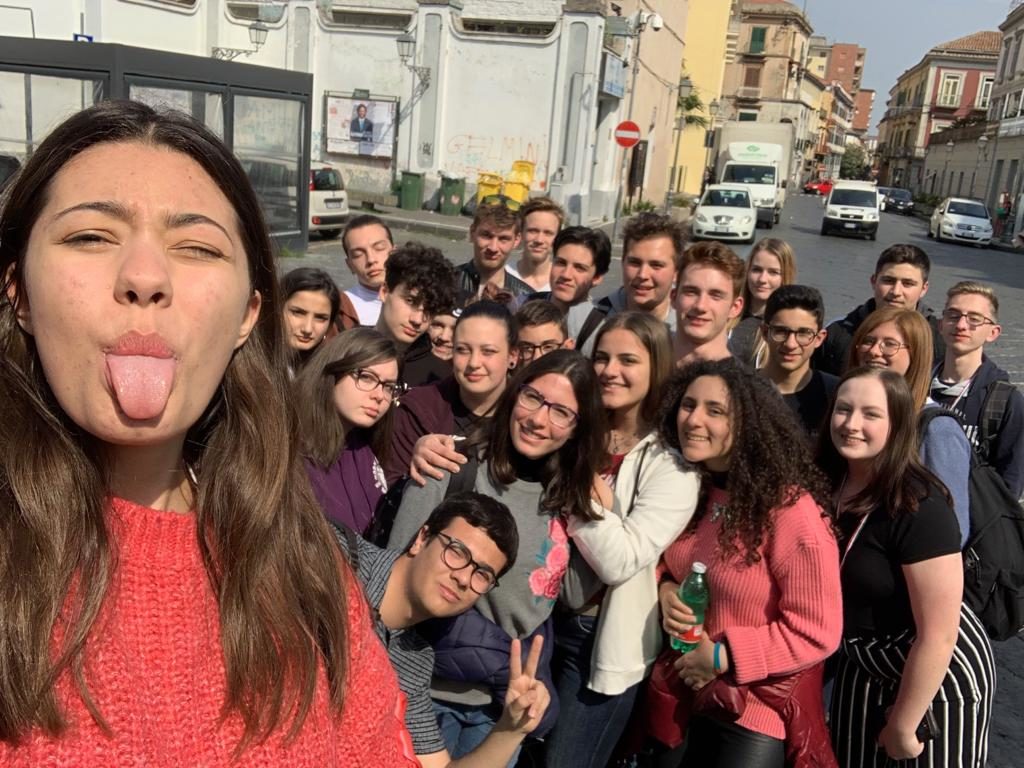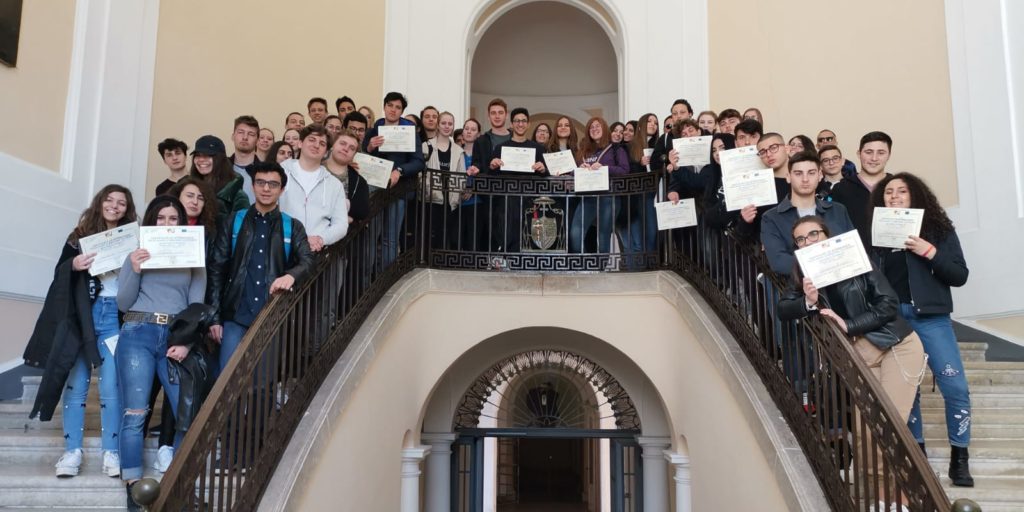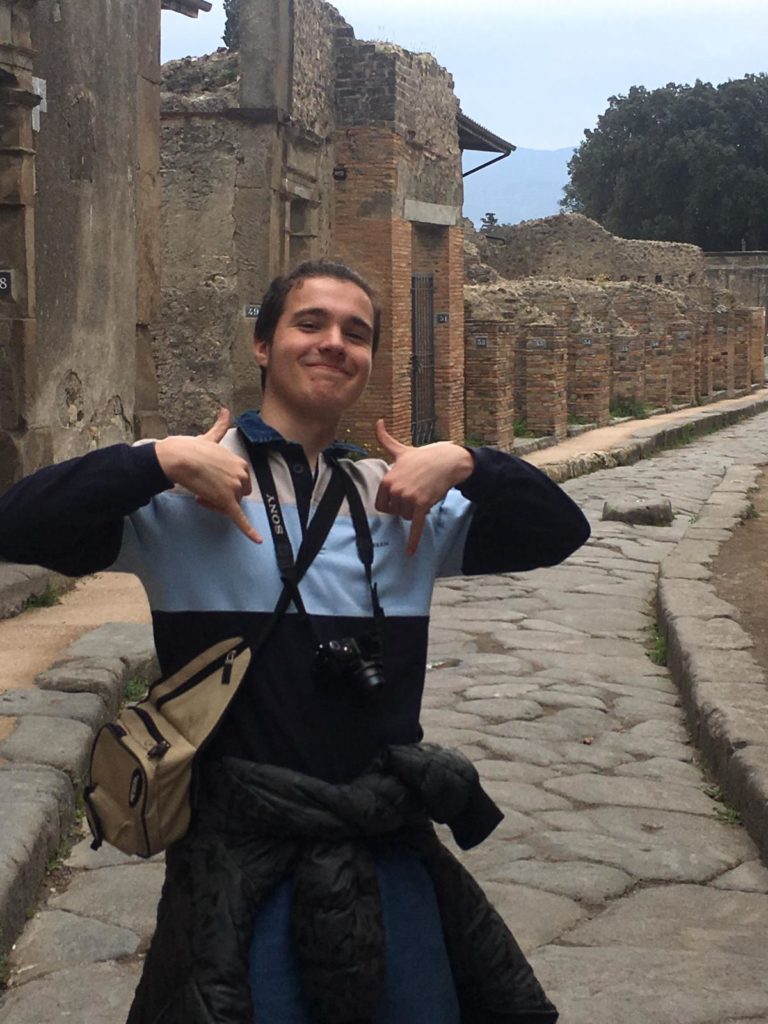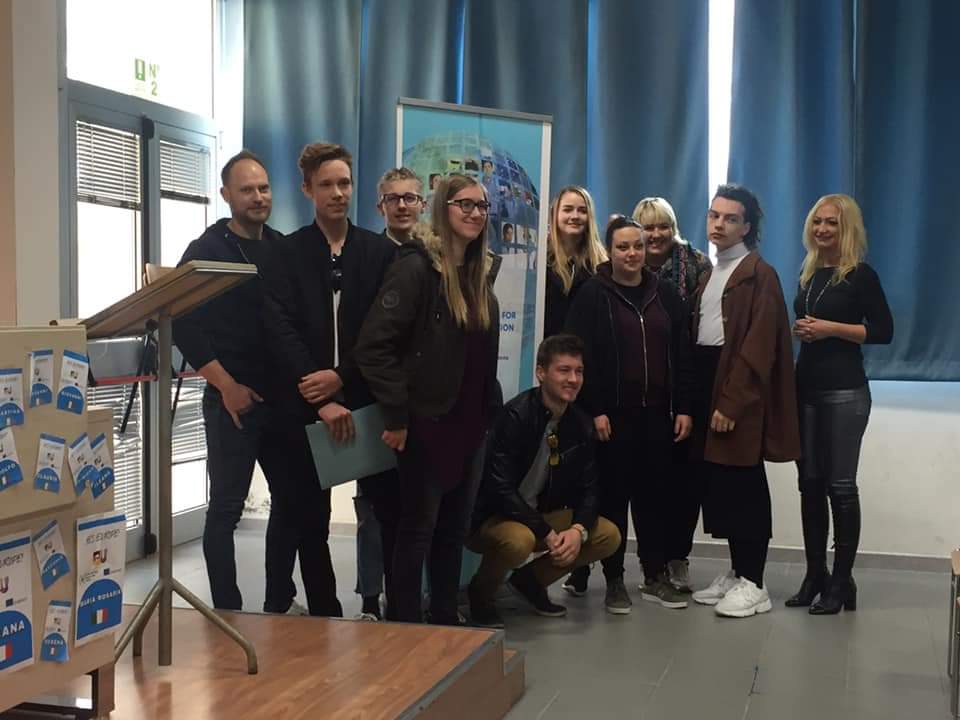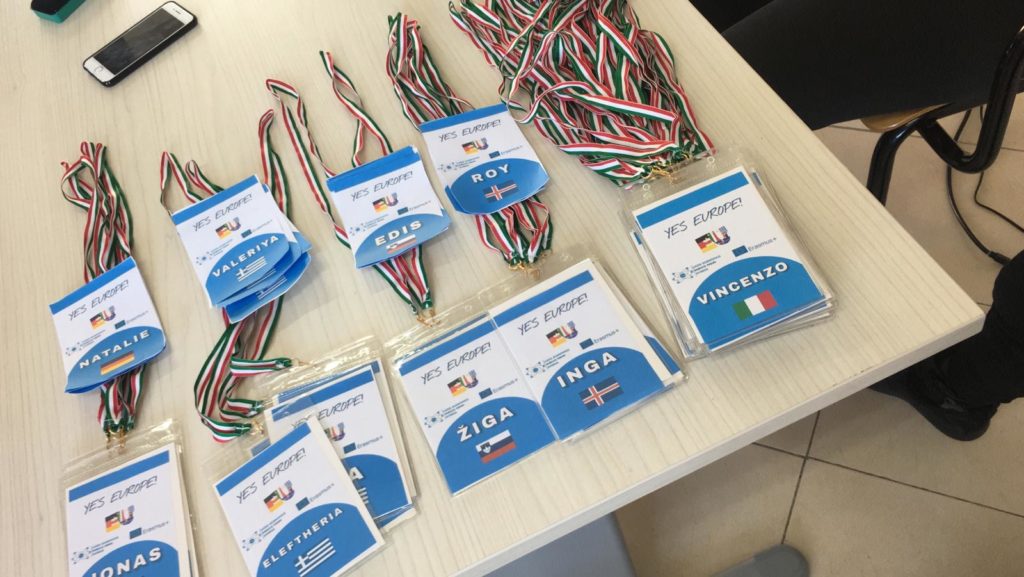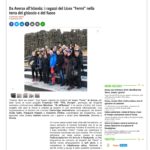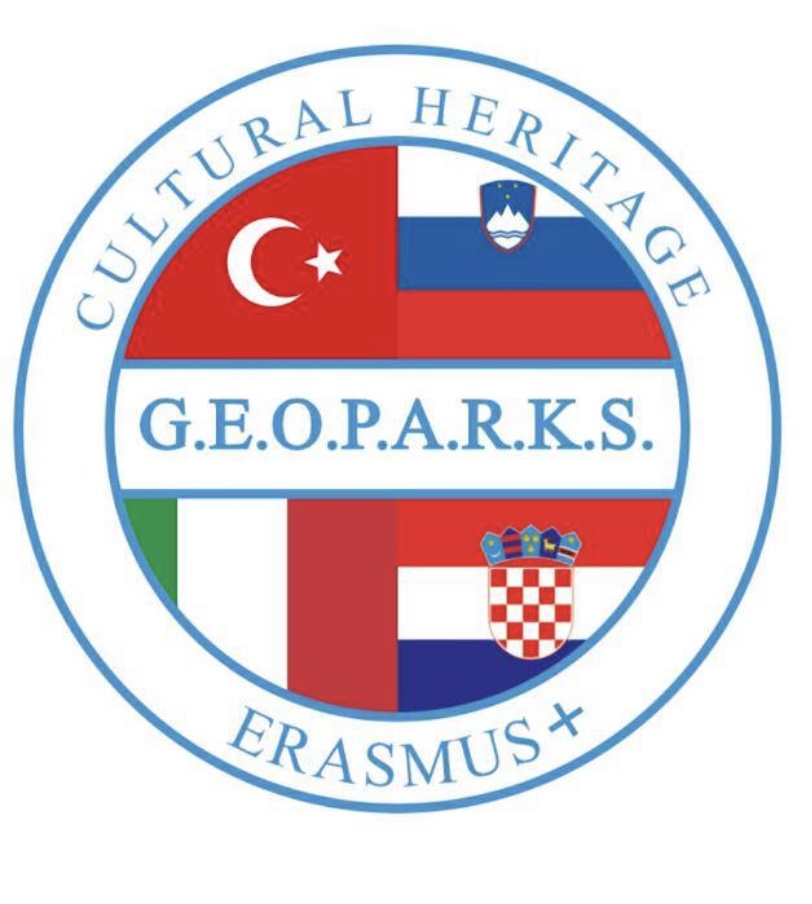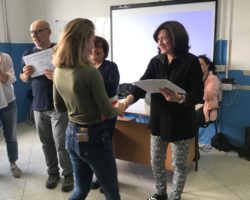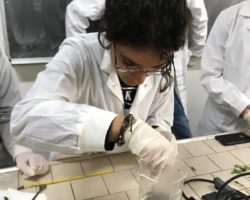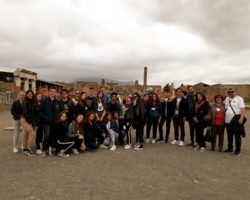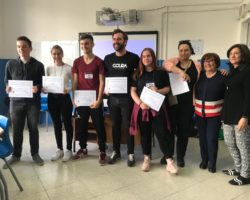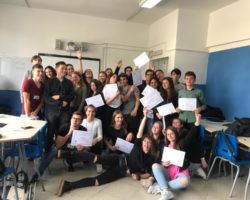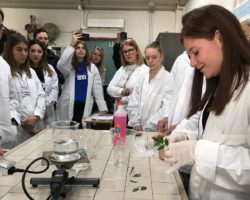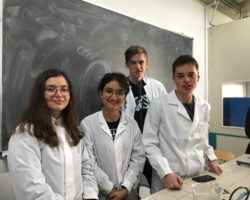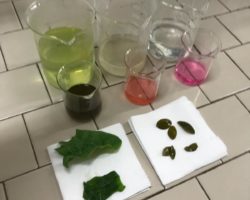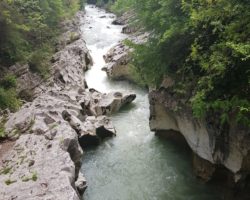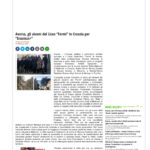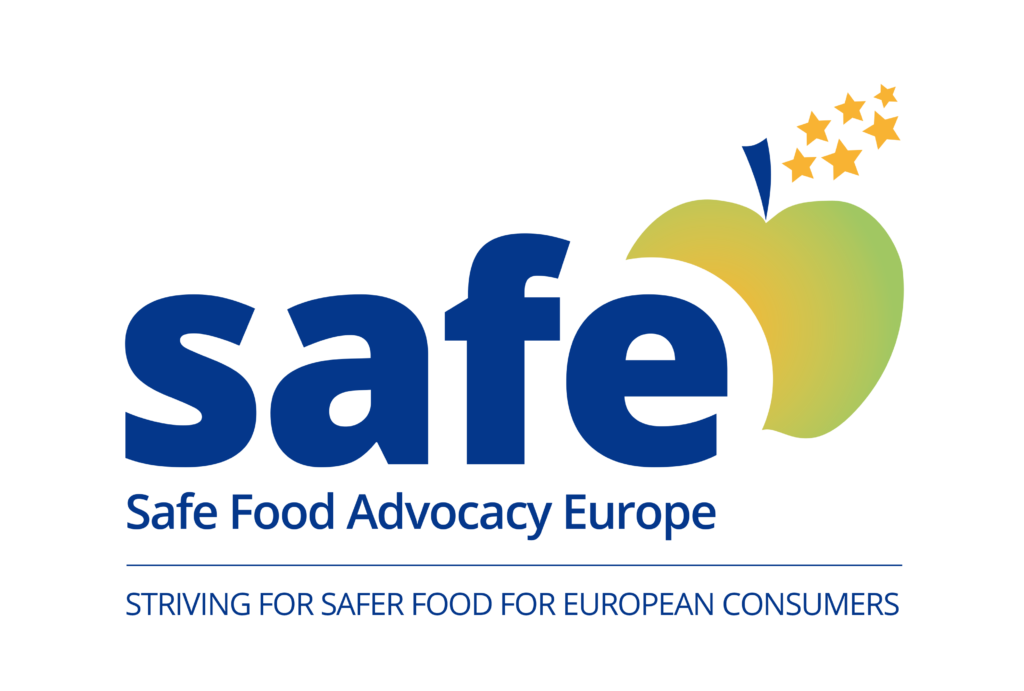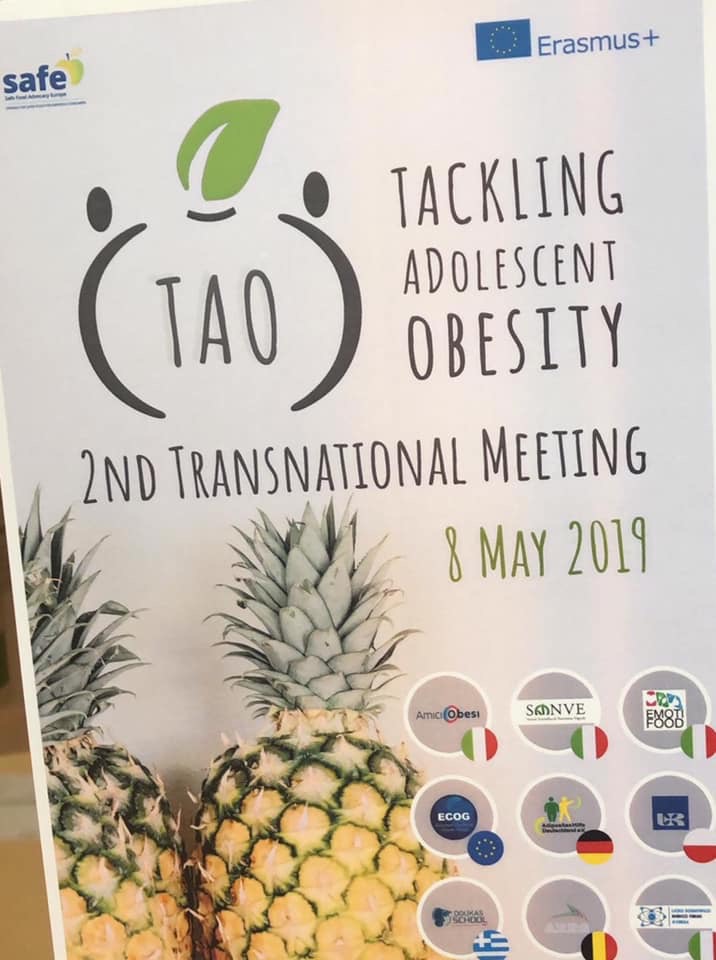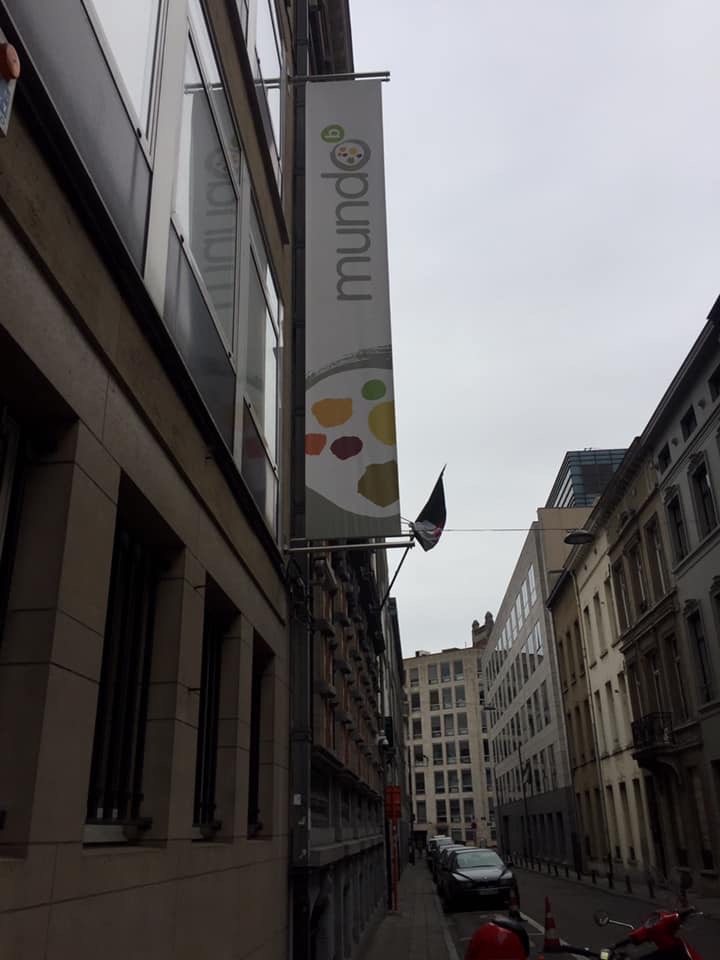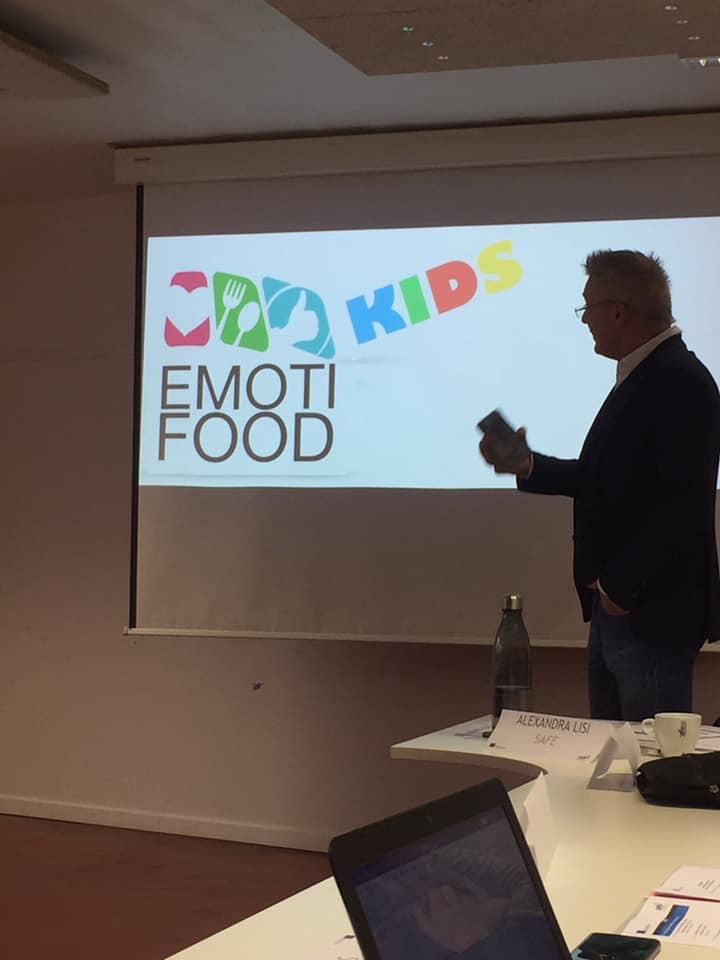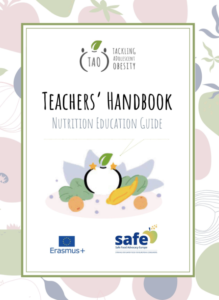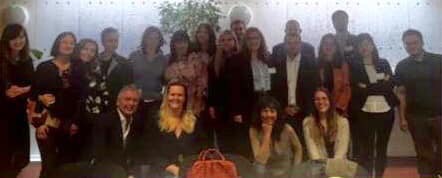Welcome to ERASMUS+
Erasmus+ is the EU’s programme to support education, training, youth and sport in Europe. Its budget of €14.7 billion will provide opportunities for over 4 million Europeans to study, train, and gain experience abroad.
Set to last until 2020, Erasmus+ doesn’t just have opportunities for students. Merging seven prior programmes, it has opportunities for a wide variety of individuals and organisations.
Erasmus+ has opportunities for people of all ages, helping them develop and share knowledge and experience at institutions and organisations in different countries.
Erasmus+ has opportunities for a wide range of organisations, including universities, education and training providers, think-tanks, research organisations, and private businesses.
The aim of Erasmus+ is to contribute to the Europe 2020 strategy for growth, jobs, social equity and inclusion, as well as the aims of ET2020, the EU’s strategic framework for education and training.
Erasmus+ also aims to promote the sustainable development of its partners in the field of higher education, and contribute to achieving the objectives of the EU Youth Strategy.
Specific issues tackled by the programme include:
- Reducing unemployment, especially among young people
- Promoting adult learning, especially for new skills and skills required by the labour market.
- Encouraging young people to take part in European democracy
- Supporting innovation, cooperation and reform
- Reducing early school leaving
- Promoting cooperation and mobility with the EU’s partner countries
The outcomes of Erasmus+ are available in reports and compendia of statistics, as well as through the Erasmus+ Projects Platform, which includes most of the initiatives funded by the programme, as well as a selection of good practices and success stories.
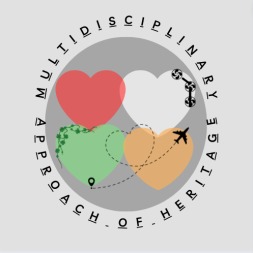 Progetto eTwinning “Multidisciplinary Approach of Heritage” – Il patrimonio culturale come ponte tra i giovani europei
Progetto eTwinning “Multidisciplinary Approach of Heritage” – Il patrimonio culturale come ponte tra i giovani europei
Il Fermi di Aversa, con la classe 1 TReD, ha partecipato al progetto eTwinning “Multidisciplinary Approach of Heritage”, in collaborazione con la Scuola Superiore Sperimentale Generale di N Ionia Magnesia Grecia, il Colegio Azkorri Ikastetxea Spagna, e con l’ICS 2 “Da Vinci Comes” di Portici. L’iniziativa, collegata a un progetto Erasmus+ KA120SCH, ha coinvolto attivamente gli studenti in un percorso dedicato alla scoperta del patrimonio culturale europeo e alla promozione della cittadinanza attiva.
Attraverso attività digitali, scambi online e momenti di confronto internazionale, i ragazzi hanno esplorato tradizioni, lingue e valori condivisi, imparando a riconoscere la ricchezza della diversità europea e il potere della collaborazione tra culture.
Il progetto ha offerto un’esperienza formativa stimolante, rafforzando il senso di appartenenza a una comunità europea e promuovendo competenze digitali, linguistiche e relazionali.
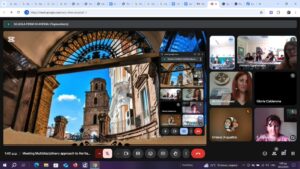
No Man is an island
Erasmus+ KA229 “No Man is an island”
YES Europe II Young
Italy – Iceland – Greece – Germany – Slovenia
The project YES Europe II Young people in Education and Studies working in Europe aims at helping students to find study and working options in Europe and is a follow up project. In work situations today it is required by many countries to be international and gain experience in another European country, but students are often reluctant to do internships, trainings or studies in another country as they are afraid and see too many obstacles.
In certain parts of Europe today more and more young people know that they will be unemployed after finishing their schooling and therefore lack motivation to continue with their education and even drop out of school. There are young people needed in many work fields all over Europe, however, the students do not know how they can find an internship, training or job outside their home country. They also do not know how to find study options in a different European country. During the project students will gain the necessary intercultural, methodical, linguistic and ICT competences to enable them to find work and study options in the European partner countries and assess their own degree (EQF).
A course YES Europe will be implemented at each school and integrated into the school curriculum which focuses on intercultural learning and application processes. Teaching material will be designed also based on material produced in the SCUBA Comenius project (Schools communication Understanding for Business Awareness and former YES Europe Project.
5 transnational meetings with all partners will be held in each participating country (Iceland, Slovenia, Italy, Greece and Germany). 6 and more students and 2-3 teachers of each country will participate in each meeting and function as experts and multipliers. The first meeting will be held as a youth conference where students will determine their needs when wanting to find study and working options in Europe. A work plan will be designed that will be followed at the next meetings. At each meeting local companies will be visited and question sessions will be held. Further, the students and teachers will meet with universities, job centers and the chamber of commerce to collect information on the job and study market. Students will learn about the education system, housing situation, work situation and study options in each country. In addition, the students will be trained prospectively in the following fields during the 3.-5th meeting (the exact work plan will be set by students at the youth conference):
– determine their professional domain (e.g. test)
– understand their own strengths and weaknesses and define their motivation (e.g.test, interview)
– understand companies‘requirements in partner countries (e.g. through interviews with people from HR departments)
– understand intercultural differences by being together with people from the other countries
– find job vacancies in the participating European countries (e.g internet and newspaper research, job centers)
– assess the value of their education in the European partner countries (e.g. universities, job centers) EQF
– assess their English language skills
– know about study/training options in the partner countries (e.g. universities, job centers)
– know about needed professions in the partner countries (internet research, job centers)
– use communication tools which are needed to communicate with colleagues, bosses, friends
– successfully write an application in English (training course)
– succeed in a job interview (assessment center, interview training)
– organize their travel/work documents (e.g. office of immigration, internet research)
– find accommodation in the European country (newspaper, internet research)
At the end markets of opportunities will be held in each country and at the last meeting all results will be presented to local companies, universities, job centers, chambers of commerce as well as neighboring schools. A YES Europe booklet/CD will comprise all results and will serve as a means for dissemination. The YES Europe homepage and the eTwinning platform will also insure dissemination of the project.
The results of the project are valuable not only for schools but also for institutions such as companies, universities and job centers to help employees and students in finding jobs and education in the European partner countries, therefore, we expect to reach the institutions mentioned above. The number of people reached in the project will therefore amount to several thousand people in each country.
The long term effects of the project will be that students will find work placements and study options in other European countries and therefore the motivation of students to move within Europe will increase. The number of jobless and aimless students will decrease and students’self-confidence and motivation will increase significantly.
Headmistress Ds Adriana Mincione
Erasmus+ coordinator prof.ssa Costanza Chirico
Erasmus+ GEOPARKS 2018/2020
Italy – Turkey – Croatia – Slovenia
https://www.facebook.com/groups/1126973924129328/
Geoparks are unique and rare natural heritages for us from the Mother Earth. Geoparks bring education, awareness of protection and economic development to societies. The role of education is very important in the sustainability of life in nature. This sustainability is only possible to recognize and understand the nature and Mother Earth. The most efficient way of the education of introducing the Earth we live on and creating the awareness of protecting the nature to the next generations is experiencing, observing, exploring and discovering the World Heritage Geoparks. Reproduction of these historic heritages is not possible. At this point, protecting the nature and each product of nature becomes important. Geoparks run this protection mission by economic contribution. If we consider the importance of today’s nature tourism, the most efficient places of the geotourism become geoparks. At this point, the sustainability of economic profit will keep parallel with the sustainability of the awareness of protection. Contributing the sustainability of Geoparks, we would like to educate our students who are aware of them, a heritage from our Mother Earth, sensible towards them and responsible to take care of them as well as taking action about them.
Besides, with our project we would like to contribute the 2025 vision of European Comissison that set out its vision and concrete steps to create a European Education Area by 2025, “Improving language learning: by setting a new benchmark for all young Europeans finishing upper secondary education to have a good knowledge of two languages in addition to their mother tongue(s) by 2025;promoting lifelong learning: by seeking convergence and increasing the share of people engaging in learning throughout their lives with the aim of reaching 25% by 2025;supporting teachers : by multiplying the number of teachers participating in the Erasmus+ programme and eTwinning network and offering policy guidance on the professional development of teachers and school leaders.” Including the activities to foster the practice of English, encourage them to lifelong learning and help the professional development of the participant teachers.
Having the similar point of view and similar objectives, schools from 5 European countries; Spain, Italy, Slovenia, Croatia and Turkey cooperated to contribute the increase the awareness of Geoparks and their protection under UNESCO National Geoparks List as World Heritage (Turkey and Croatia has only one Geopark in their countries which makes the desire to work on them more meaningful), established a partnership and created this project.
Headmistress Ds Adriana Mincione
Erasmus+ coordinator prof.ssa Costanza Chirico
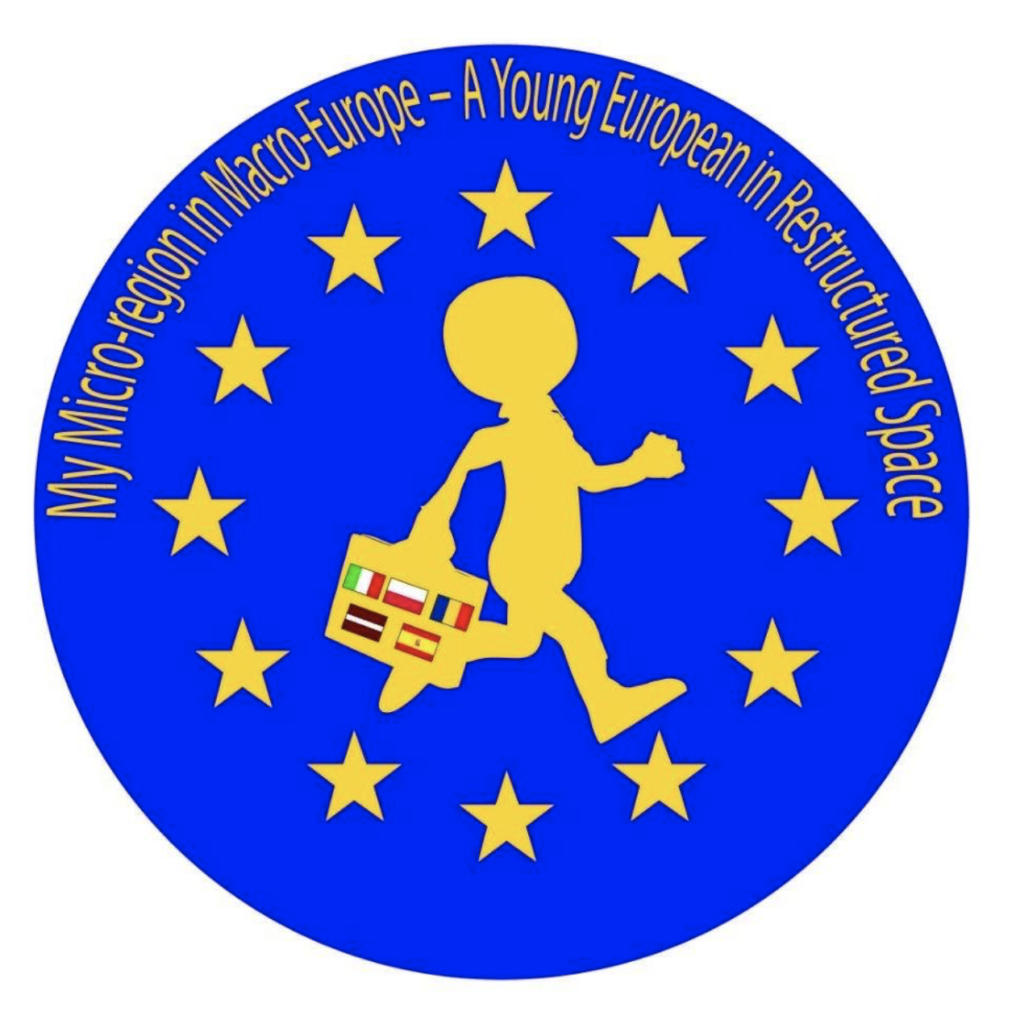
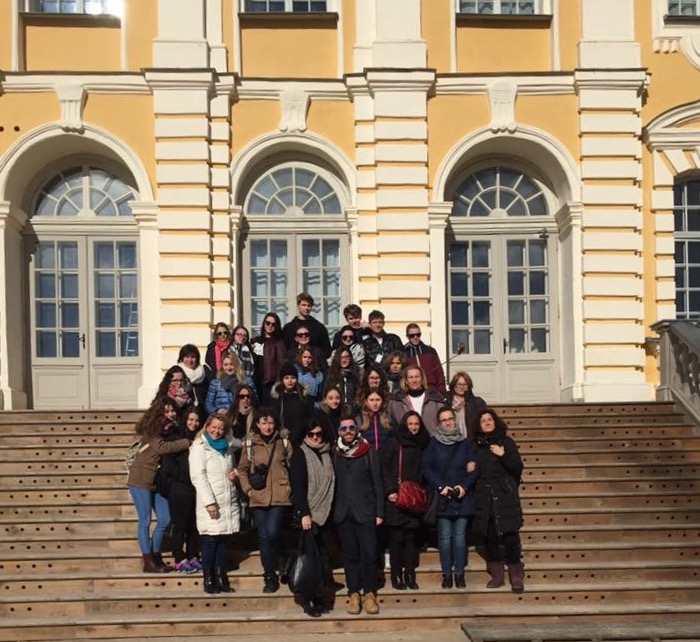
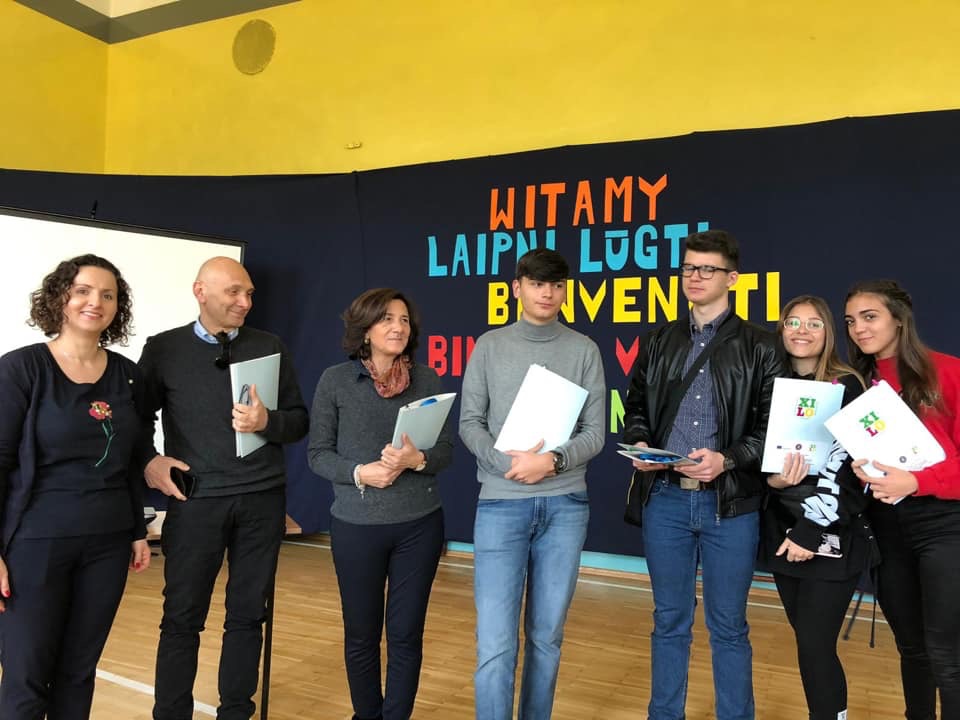
Erasmus+ Micro-Macro Europe 2016-2019
Italy – Poland – Latvia – Spain
https://micromacroeurope.wixsite.com/erasmusplus
The project aimed at improving the soft skills involved into other subject matters. Being part of an Erasmus+ school community is a distinguishing feature in our city council and it means to reinforce the international sector of the school and highlight the sense of belonging to our school community which is unique in the local territory. The good practice book has been uploaded in our webpage along with the link to our project webpage in order to disseminate it and make it available to students and local citizens.
Target group, the students with less chances
The students taking part to the Erasmus+ group belonged to two different sectors of the school: those who study ITC and who are aware of the job market and opportunities and those who are more academic and were not aware of the necessity of developing and implementing other skills to apply for a job consequently speciality soft skills were learnt through techniques like gamification and the project has become fun and widely accepted by all the students. Comments and feedback about those activities have been definitely satisfactory.
Once the project finished, it has been presented as a tangible product our students are capable of creating even if their curriculum is mainly academic.
Thanks to such a project we produced documents which are useful to our students’career:
| Document | Number of participants |
| Europass Mobility | 25 |
| CV in Europass | 25 |
All along the project we have produced many different kinds of questionnaires:
- Questionnaires before and after the activities and the mobilities to assess and choose the best ones.
- Questionnaires to the students about their experiences after every meeting in order to know the weaknesses and strengths of the project and try to solve problems.
- Questionnaires to the parents about their kids experiences in every meeting in order to know the weaknesses and strengths of the project and try to solve problems.
- Questionnaires about the participation of our students at the end of every academic year to know how the project was spread. The main impact has been created by questionnaires used after the mobility in Italy where the students got a great awareness of the importance of promoting cultural exchanges.
- From a general point of view, we can state that: 100% of students, parents and teachers think that our school needs Erasmus+ projects to open minds and opportunities, to share new cultures, to reduce stereotypes.
80% state that soft skills workshops had helped them to learn something new.
50% think that participating in the project could help them to be aware of the job market in the future. However, 30% of our students claimed that the activities were not well integrated in the didactic activities.
The project has been disseminated through conferences, workshops, newspapers, video, fb pag, eTwinning platform, in September 2016 the project was presented to the Council of board at school to be approved, in November 2016 students of the school voted the logo project, between January and June of 2017, we carried out the activities to be presented during the meetings in Riga and Craiova. Throughout June 2017, during the final school open days when all the school activities are presented the Book of Good Practice was offered to the students taking part in the project. All along 2018-2019 school year, we have offered the Book of Good Practices activities to the ASL (alternanza scuola lavoro) Department in order to be integrated. In 2017 the Liceo scientifico “E. Fermi” has been named the main school to manage teachers’training courses and has chosen to get a course about Erasmus+ application to all local schools and the link of the project and the Book of Good Pratice is to be officially presented as a best practice to local schools.
Headmistress Ds Adriana Mincione
Erasmus+ coordinator prof.ssa Costanza Chirico
Erasmus+ KA201
Tackling Adolescent obesity and promoting inclusion through nutrition trainings for disadvantaged youth 2018/2020
Italy – Belgium – Poland – Germany
web page: https://meet-tao.eu/it/
The project erasmus+ safe food is an ambitiuos project which aims at including and integrating students with probelms of obesity and/or anorexia. The fimnal objective is to teach adolescent to have a safe relationship with food. It is a project made by schools, universities and companies which are studying to prepare a book collecting best practices and results. Meetings are generally in Bruxelles.
Safe Food Advocacy Europe Belgium
Athenee Royal de la Rive Gauche Belgium
The European Childhood Obesity Group Belgium
AdipositasHilfe Deutschland e.V. Belgium Germany
DOUKA EKPAIDEFTIRIA AE – PALLADION LYKEION EKFPAIDEUTHRIA DOUKA Greece
‘P. & A. Kyriakou’ Children’s Hospital Greece
Amici Obesi onlus Associazione Nazionale Pazienti Obesi Italy
Società Scientifica Nutrizione Vegetale SONVE Italy
Liceo scientifico “E. Fermi” Aversa Italy
UNIWERSYTET RZESZOWSKI Poland
Headmistress Ds Adriana Mincione
Erasmus+ coordinator prof.ssa Costanza Chirico
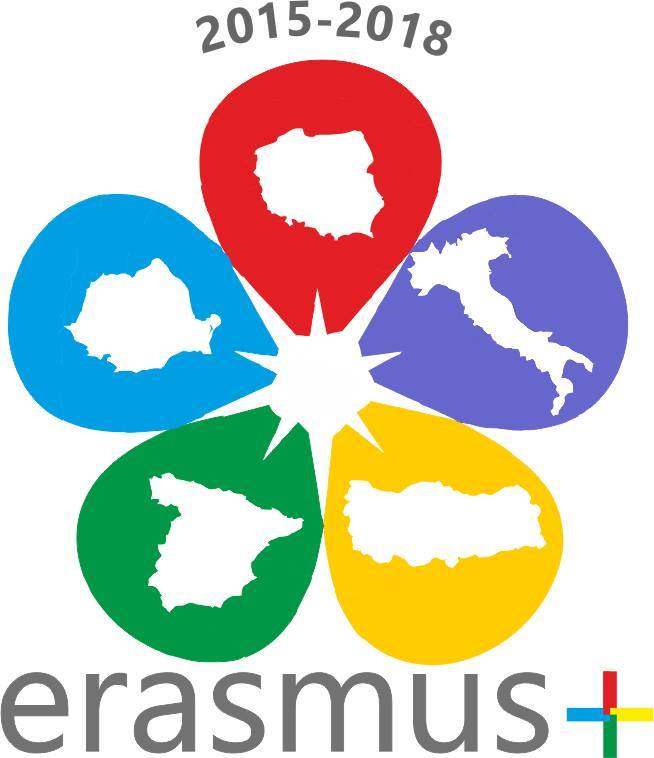
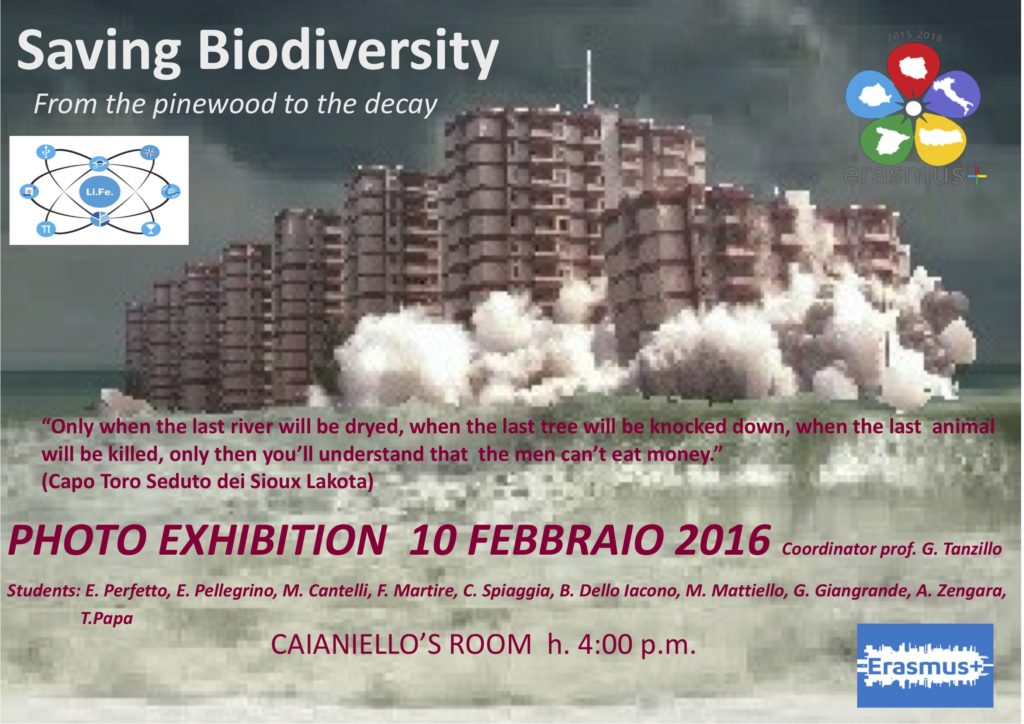
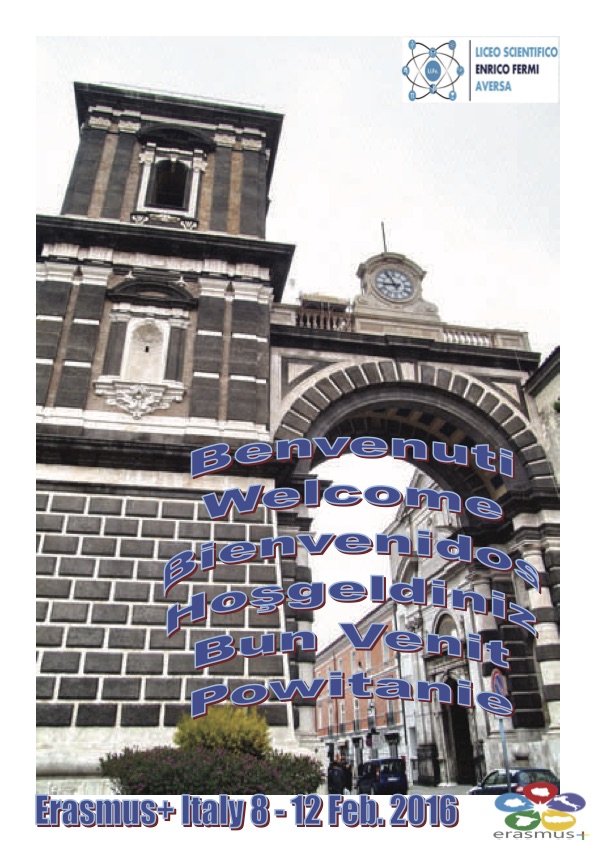
Erasmus+ Biodiversity in Europe 2015-2018
Italy – Poland – Spain – Turkey
https://www.facebook.com/Project-Clubs-Erasmus-2015-2018-456802371181979/
The project “The Last Chance – Preserving Biodiversity for Future Generations” is a strategic partnership formed by schools from Italy, Romania, Spain, Poland and Turkey. The schools have put emphasis on teaching natural sciences and developing a project which has combined these subjects: English and ICT as well as art, music and sport. The cooperation between the partners, who contacted through etwinning, started before submitting the application. The project addressed to students aged 16 -18 and teachers aimed to develop students’ knowledge and skills in natural sciences as well as improve their language skills, especially ESP.
Other objectives have been the following:
- a) learn how to plan, conduct and analyse a scientific research
- b) develop ICT skills
- c) develop interpersonal and intercultural competences
- d) exchange experiences and good practice
- e) carry out peer learning activities and workshops
- e) raise ecological awareness of the students and local communities
The project lasted three years. The partners focused on the topic of biodiversity and analysed the anthropogenic causes of the decrease of biodiversity as well as discussed actions whose aim was to improve the quality of the natural environment. Some of the discussed topics were: destruction of the habitats and ecosystems, reintroduction and restitution, species and area protection. The project activities have taken place through the project website and the project TwinSpace on the eTwinning site and short-term exchanges of groups of students. Short-term exchanges, have taken part, as planned and 298 participants have taken part. The criteria for choosing the students were shared by the partners and included: the level of English proficiency, good marks in natural sciences, understanding of the objectives of the project and active participation in the life of the school and local community. Also, four transnational project meetings, have taken place, as planned and about 32 participants have taken part.
Some of the activities that have been carried out during student exchanges are the following:
- a) lectures and experiments at universities; the aim was to develop students’ knowledge and skills (e.g. teach them how to analyse the purity of the natural environment using the chemical, biological and physical methods)
- b) field workshops and guided trips to national parks, ecological centres, refinery, wind farms, hydro thermal dam, etc.
- c) seminars and CLIL lessons
- d) activities promoting ecological issues in the local community, e.g. happenings, eco-fashion show, eco-festival, Open Stage music festival, photography exhibition, festival of films and commercials made by the students, poetry competition, sports competition, etc.
- e) workshops during which the students have prepared the project products, e.g. a booklet “Species and Biological Biodiversity in Europe”, eTwinning gallery “Biodiversity in Music, Literature and Art”, leaflets, multimedia presentations, project website.
Moreover, during each exchange visit activities introducing traditions and culture of the host country have taken place. Each school has formed Project Club which have coordinated students taking part in activities. Students in between exchange visits have developed knowledge, practiced English, prepared the materials necessary for the next meeting (films, presentations, surveys, questionnaires, photos). They have used the project website, eTwinning and social networking sites to collaborate.
Throughout the project activities, students have been given the opportunity to develop knowledge and skills in natural sciences, improve language skills and ICT skills, develop interpersonal and intercultural competences. They have been able to carry out peer learning workshops. Teachers have exchanged good practice and experiences, especially those connected with CLIL. Ecological awareness of the students and local communities have risen and wide access to the project results has been provided
The project has had a significant impact on the students, teachers and schools:
- a) students have developed their knowledge and skills in natural sciences by doing, seeing and experiencing
- b) they have become aware of their own and European culture, open and tolerant
- c) project activities have stimulated their creativity
- d) their motivation to learn English as well as language competence have increased
- e) they have developed intercultural competence
- f) they have developed ICT skills
- g) teachers’ professional skills have increased; they have learnt new methods, exchange experiences
- h) schools have gained prestige in the district and improved the quality of work
- i) schools and local communities have had the ecological awareness
Long term benefits will be seen in the activities of people who are students today and in the future will have a real impact on European cooperation, partnership and integration.
Headmistress Ds Adriana Mincione
Erasmus+ coordinator prof.ssa Costanza Chirico

